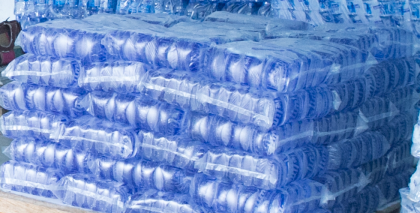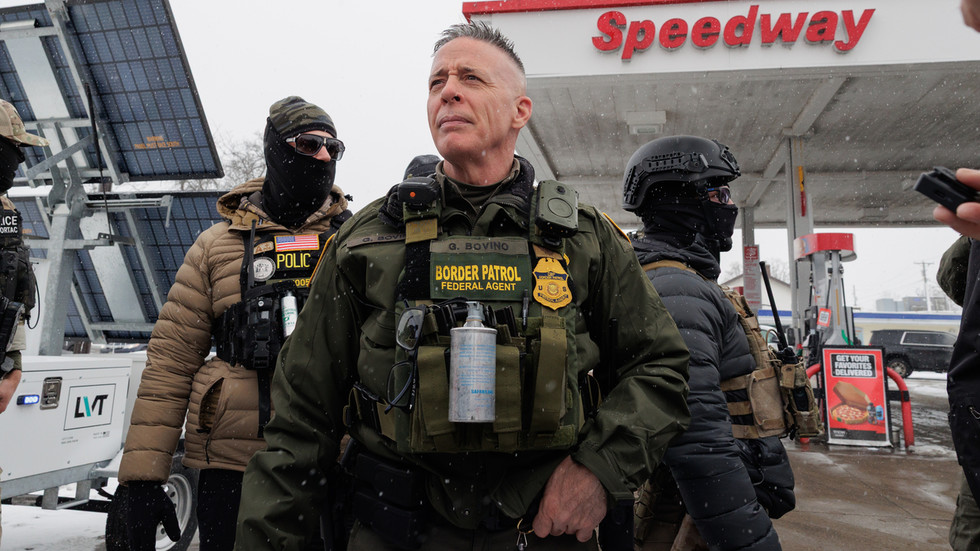Metema, Ethiopia — ‘They began to query why I used to be leaving Sudan, they usually accused me of not being Sudanese.’
For 1000’s of individuals attempting to escape the violence and mayhem of Sudan’s civil warfare, the southeastern border publish with Ethiopia is a irritating choke level – staffed by unsympathetic Sudanese immigration officers and suspicious safety police.
Galabat, the principle Sudanese border city on the escape route to Ethiopia, is clogged with would-be refugees. There’s a relentless stream of mini-buses and vans overloaded with individuals and their belongings: Donkey carts and wheelbarrows teetering with baggage and suitcases manoeuvre previous the knots of individuals standing by the roadside.
Since preventing broke out between the military and rival paramilitary Rapid Support Forces (RSF) on 15 April within the Sudanese capital, Khartoum, round 30,000 individuals have crossed into Ethiopia over the Metema bridge that separates the 2 nations.
But new, heavy-handed safety checks by Sudanese border officers imply these numbers are dropping – from roughly 1,000 individuals arriving every day to just lately round 600, an immigration official, who requested not to be named, informed The New Humanitarian.
“They started to question why I was leaving Sudan, and they accused me of not being Sudanese,” mentioned 32-year-old Shams al-Din, who deserted his home in Khartoum, shut to the worldwide airport, after it was occupied by RSF fighters.
The petty harassment by Sudanese immigration officers meant “they didn’t even allow me to bring my bag with the few clothes I had with me”, he informed The New Humanitarian.
Ibrahim* mentioned he had heard of individuals “who spent days jumping through [administrative] hoops” in Galabat. He recalled a protracted listing of questions earlier than being allowed to cross and journey on to Kenya: “We were asked the reason for leaving, our onward tickets, and our job.”
Other refugees interviewed in Metema described related hounding, with Sudanese officers asking them “why are you leaving us behind?”, or “are you planning to ask for asylum and make us ashamed?”
Pro-democracy activists, nonetheless in Sudan, mentioned they have been fearful about being intercepted on the border by the safety police, who’re believed to be on the look-out for high-profile people. “They have a list with names,” one activist, who requested not to be named for safety causes, informed The New Humanitarian.
The Ethiopian authorities has mentioned it welcomes “any Sudanese who cross its borders at this trying time”. But all those that arrive – both to keep in Ethiopia or as they transit to a 3rd nation – should pay $80 for an entry e-visa.
International help groups turned again
Sudanese safety police are additionally irritating makes an attempt by groups of worldwide aid employees to enter Sudan, even when they maintain legitimate visas, help officers mentioned.
“Not much progress to note in terms of access despite some visas issued in Nairobi & Paris,” mentioned an inner e mail from a global help company shared with The New Humanitarian. “Crossing from Ethiopia did not work, joint teams … were blocked and sent back to [the capital, Addis Ababa].”
Other help organisations shared related tales, talking on situation of anonymity.
The UN’s air bridge, connecting Kenya to the japanese Sudanese metropolis of Port Sudan, has additionally suffered repeated flight cancellations – affecting the motion of individuals and provides.
Humanitarian wants in Sudan have been already important earlier than April’s preventing, and have worsened because of repeated ceasefire breakdowns. More than half the inhabitants – 25 million individuals – at the moment are in want of humanitarian help and safety.
One Sudanese safety officer in Galabat mentioned a listing of help employees had been compiled: “Next to their names they are just adding the word ‘spy’.” The New Humanitarian couldn’t confirm this allegation.
Eritreans worry abduction
Most Sudanese arriving in Metema have flight tickets and cash and transfer on – Kenya and the Gulf nations are among the many locations of alternative for many who can afford it. But 5,366 individuals have additionally requested for asylum, in accordance to the UN’s refugee company, UNHCR.
Nearly 90% of the asylum seekers are Eritreans – half of them beforehand registered as refugees in Sudan. They are among the many greater than 136,000 Eritreans who had fled their nation’s authoritarian regime – and the danger of near-indefinite army conscription for younger males – to settle in neighbouring Sudan.
Threatened by the preventing between the Sudanese military and RSF, some had left the string of refugee camps in japanese Sudan for Metema. But all through the journey they have been fearful about abduction by Eritrean brokers, particularly round Kassala, a city shut to the Eritrean border. Sudanese safety forces have additionally been accused of forcibly deporting Eritreans.
“We feared kidnappings by Eritrean authorities, or traffickers, as we heard that some people were abducted near Kassala,” mentioned 34-year-old Kaka*, who arrived in Metema along with his spouse and three youngsters.
He had spent $700 to carry his household throughout the border, however for the previous three weeks they’d all been sleeping in a makeshift tent. “We have no money and nowhere to go,” he informed The New Humanitarian. “We sold our tv for $250 and we have almost nothing left.”
Aman*, 26, initially from the Eritrean capital, Asmara, arrived in Metema weeks in the past from Khartoum along with his spouse and 10-year-old daughter. “We are running out of money, all our savings [have gone], and we have nowhere to turn,” he mentioned.
Although UNHCR has provided all asylum seekers the choice of being settled in a camp in Gondar, in northern Ethiopia, Aman was hesitant, asking: “How can I raise my daughter in a camp?”
‘I do not know the place to start, however fortunately I’m nonetheless alive’
Other refugees in Metema have moved into no matter lodging they’ll afford.
Al-Din, from Khartoum, together with greater than 60 different individuals, lives in a run-down lodge with intermittent electrical energy and no working water, and the place rooms nonetheless price $6 a day per individual.
Sign up without cost AllAfrica s Get the most recent in African information delivered straight to your inbox
Forced from his dwelling by RSF troopers, he left just about every part behind – together with his passport. “They just kicked me out of my house,” he mentioned. Now, he’s stranded in Metema, “I don’t know where to begin, but thankfully I’m still alive,” he added.
Forged Ethiopian id playing cards are on sale for $900 for many who want papers and are keen to take the danger. But the copies aren’t excellent, and folks have been arrested on the first safety checkpoints outdoors Metema consequently, after which despatched again to the city.
Meanwhile, in an acknowledgement by the authorities that the disaster in Sudan will not finish anytime quickly, a brand new 57-hectare camp is underneath building by the Ethiopian Agency for Refugees and Returnees Affairs in Kumer, 70 kilometres from Metema.
It will home refugees arriving in Ethiopia who haven’t any cash or tickets to journey on, or who’re claiming asylum.
It’s not an choice that Jonas*, 36, initially from Asmara, relishes.
“I spent my life in refugee camps,” Jonas, who labored as a trainer in Khartoum earlier than the warfare, informed The New Humanitarian. “Why do I have no right to have a normal life?”
*For safety causes, these males have requested that solely their first title is used.
Edited by Obi Anyadike.
Sara Creta, Freelance journalist targeted on battle, human rights, and humanitarian points



